"Blackwell was a strong advocate for women in medicine, spending much of her time campaigning for women's rights and establishing institutions dedicated to training female medical students in both the U.S. and the United Kingdom."
~ Whiteman, Honor
CLARA BARTON AND ELIZABETH BLACKWELL
Pioneers of Women In Medicine
Pioneering Educational Reform and Social Change
"If society will not admit of a woman's free development, then society must be remodeled."
- Elizabeth Blackwell
Barton and Blackwells´ fight against degrading social norms forced society to re-explore and redefine women's roles in education. Women have been seeking advancements in attempts at reforming education- something that has only improved as women pioneers continue to pave paths for women of the future. While many women of the past would be unable to receive an education or join a healthcare facility, women in modern times now have this opportunity.
"In 1849 women still did not have the right to vote in America. For a woman to hold a degree and pursue a career that was seemingly intended for men only was truly remarkable,"
- Dr. Kelly Thibert, National President of the American Medical Student Association
"Because Blackwell altered her role as a woman in pursuing a career as a physician, some viewed her as abnormal and unnecessarily rebellious, while others admired her strength and courage and saw what her accomplishments could lead to in the future"
- Alyssa Turose
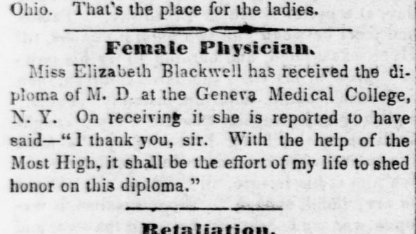
(Library of Congress)
"Blackwell established institutions dedicated to training female students; campaigned for women’s rights; and was a pioneer in advancing education for women."
- Women in Exploration
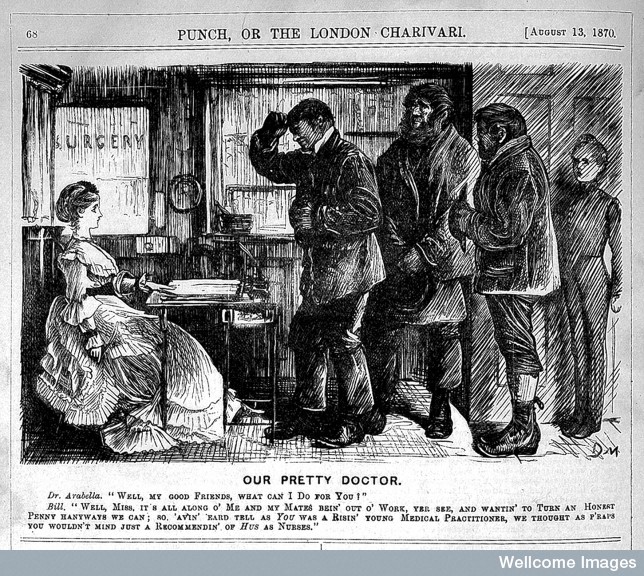
(The medical-women question is perennial. It knows no limits; we encounter it at every turn – at the universities and at the examining boards, at medical schools and in hospitals, in periodical literature and in works of fiction. - 'Our pretty doctor', Gerald Du Maurier, Punch (1870)
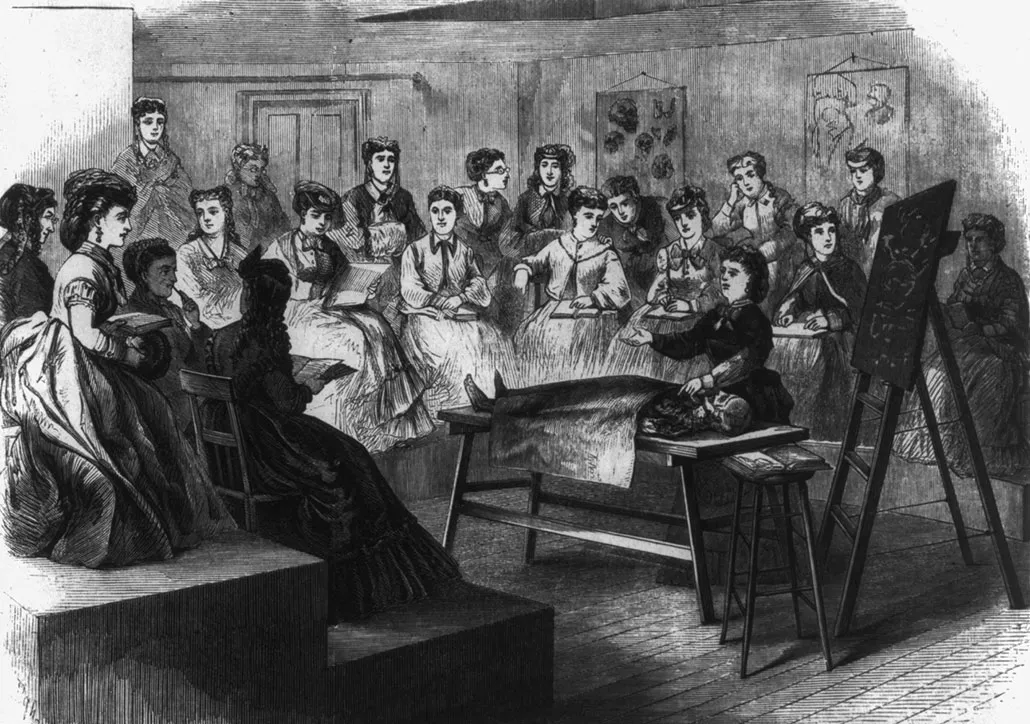
(Illustration of medical students attending a lecture at the Woman's Medical College of the New York Infirmary, founded by Elizabeth and Emily Blackwell; from Frank Leslie's Illustrated Newspaper, April 16, 1870.)
"A blank wall of social and professional antagonism faces the woman physician that forms a situation of singular and painful loneliness, leaving her without support, respect or professional counsel."
- Elizabeth Blackwell
"The admission of a woman for the first time to a complete medical education and full equality in the privileges and the responsibilities of the profession produced a widespread effect in America."
- Elizabeth Blackwell, 'Pioneer Work In Opening The Medical Profession To Women', 1895
Sanitation
"To her [Florence Nightingale] chiefly I owed the awakening to the fact that sanitation is the supreme goal of medicine its foundation and its crown."
- Elizabeth Blackwell
"After the outbreak of the Civil War, Blackwell helped to form the Woman’s Central Relief Association in New York City. This association was instrumental in establishing the United States Sanitary Commission (1861), a large organization (made up mainly of women) that aided the Union army by providing food, clothing and medical supplies and services to soldiers."
- Western New York Suffragists
"...Blackwell stated her beliefs that many medical diseases could be prevented by proper hygiene and public sanitation. She also wrote that medical ills were often caused by problems in society such as poverty and lack of education. She was a strong proponent of moral reform. Moral reformers believed that men and women should be held to the same standards relating to behavior."
- Western New York Suffragists
Many historical journals were vociferous in their opinions on female doctors. In 1870, the BMJ ran a histrionic lead article which suggested that women entering the field of medicine would be detrimental to both the interests of their sex and society. Branding the “lady-doctor” a “traitress to her sex”, it insisted a civilised society should see women dependent on men, rather than fight for professionalism and independence. Blackwell and Barton challenged these ideas.
"I may sometimes be willing to teach for nothing, but if paid at all, I shall never do a man's work for less than a man's pay."
- Clara Barton
"Even in her later years, Barton was an advocate for women's rights. Barton very publicly spoke in favor of equal rights for women. For example, in 1882 Barton delivered a lecture extolling the role Anthony, Stanton, and others played in allowing her to be such a public figure during the Civil War."
- Clara Barton Museum
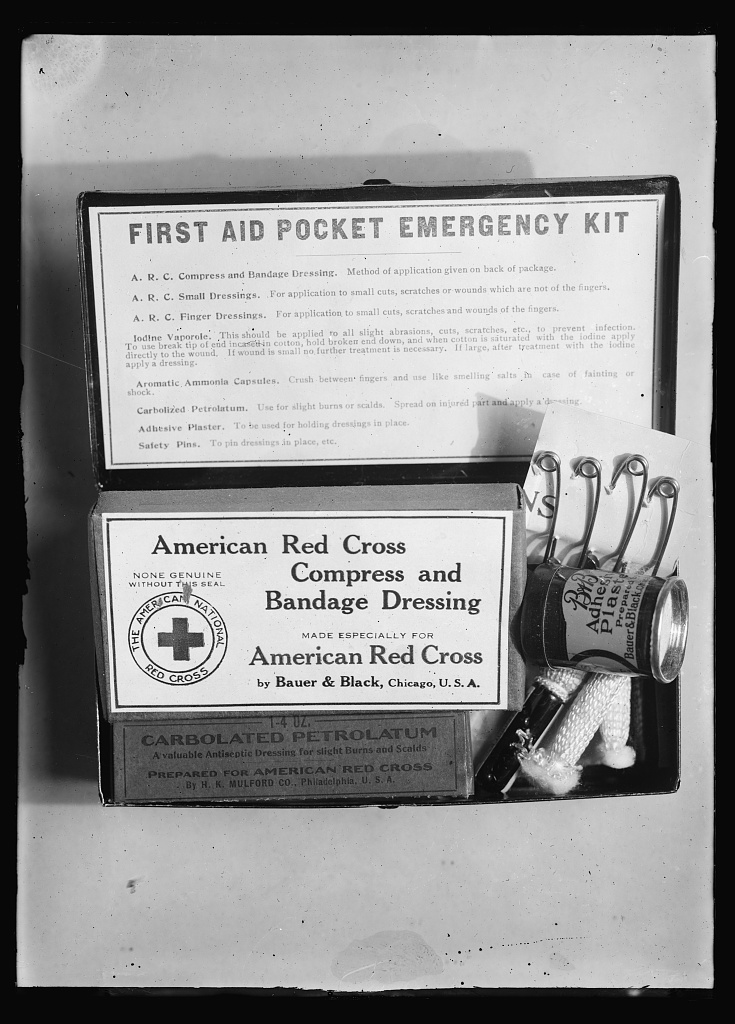
(Clara Barton’s efforts with the National First Aid Association of America helped make first aid kits like this (c 1919) more common. Courtesy of the Library of Congress)
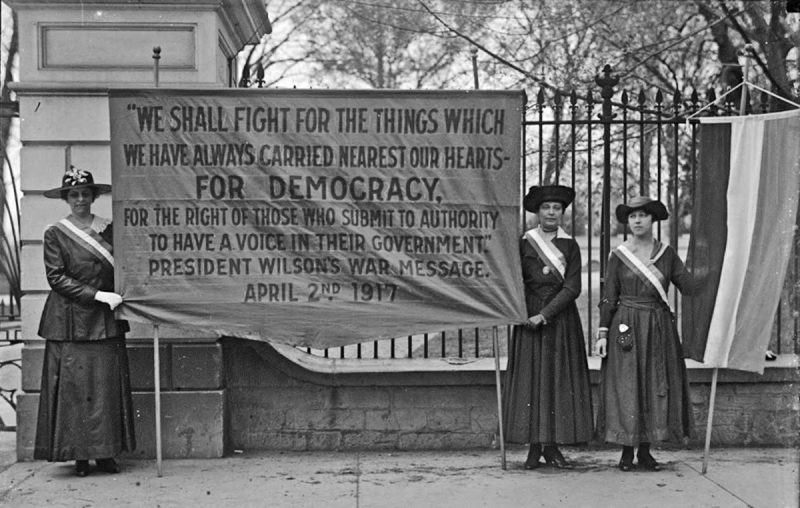
(Clara Barton Museum)
"Decades after the Civil War, Barton’s passion for first-aid took the form of spreading awareness of the importance of first-aid in civilian life. In 1905 she formed the National First Aid Association of America. This new organization was designed to teach the public how to assist in times of personal injury and localized emergencies. If everyone could be capable of administering lifesaving care in critical moments, then the United States would be a safer place."
- Clara Barton Missing Soldiers Office Museum
"I did not purchase my freedom with a price; I was born free; and when, as a younger lady I heard the subject addressed, it seemed plain ludicrous that any sensible, sane person might dispute it. And when, later, the issue of women's right to vote came up, it seemed to me just to be a portion of the total, just as right, just as natural, and just as certain to occur."
- Clara Barton
"The continuation of assuring women an equal education from 1833 to 2015 has occurred because of the myriad of successes women achieved after being given a chance. Education, like many other things, wasn’t a ‘birthright’ or privilege that women got like the majority of males did. In contrast, they were given one chance to prove their worthiness to society…"
- IPL

(A women's suffrage parade (Associated Press))
"Themes of independence and self-reliance meant that the success of the nation required highly intelligent and virtuous citizens. They saw the education of women as one way to prepare the new country and its citizens for success. The expansion of women’s education was not meant for their own benefit but to place them in a position to mold future generations into good citizens and civic leaders,"
- National Women´s History Museum